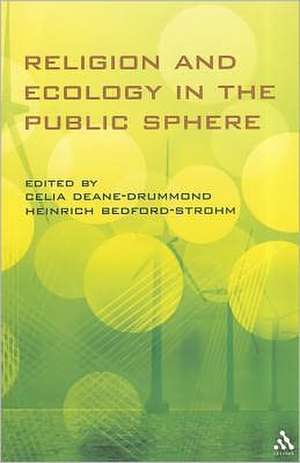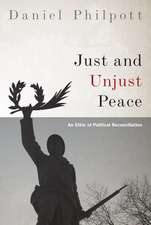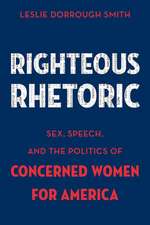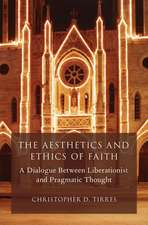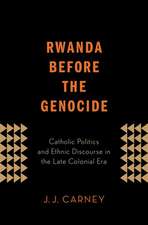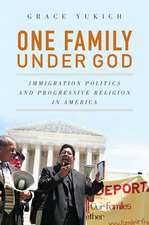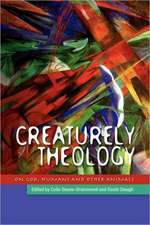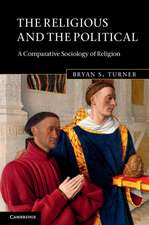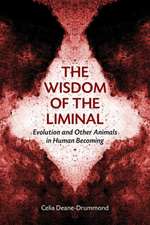Religion and Ecology in the Public Sphere
Editat de Dr. Celia Deane-Drummond, Heinrich Bedford-Strohmen Limba Engleză Paperback – 27 apr 2011
| Toate formatele și edițiile | Preț | Express |
|---|---|---|
| Paperback (1) | 306.94 lei 6-8 săpt. | |
| Bloomsbury Publishing – 27 apr 2011 | 306.94 lei 6-8 săpt. | |
| Hardback (1) | 949.98 lei 6-8 săpt. | |
| Bloomsbury Publishing – 27 apr 2011 | 949.98 lei 6-8 săpt. |
Preț: 306.94 lei
Preț vechi: 334.05 lei
-8% Nou
Puncte Express: 460
Preț estimativ în valută:
58.73€ • 64.06$ • 49.52£
58.73€ • 64.06$ • 49.52£
Carte tipărită la comandă
Livrare economică 24 aprilie-08 mai
Preluare comenzi: 021 569.72.76
Specificații
ISBN-13: 9780567035080
ISBN-10: 0567035085
Pagini: 256
Dimensiuni: 156 x 234 x 18 mm
Greutate: 0.45 kg
Editura: Bloomsbury Publishing
Colecția T&T Clark
Locul publicării:London, United Kingdom
ISBN-10: 0567035085
Pagini: 256
Dimensiuni: 156 x 234 x 18 mm
Greutate: 0.45 kg
Editura: Bloomsbury Publishing
Colecția T&T Clark
Locul publicării:London, United Kingdom
Caracteristici
Stimulates the debate about the religious contribution to discussions of ecological matters.
Notă biografică
Professor Celia Deane-Drummond is Director of the Centre for Religion and the Biosciences at the University of Chester, UK.Professor Heinrich Bedford-Strohm ist Professor in Systematic Theology and Director of the Dietrich Bonhoeffer Research Centre for Public Theology, University of Bamberg, Germany.
Cuprins
Acknowledgements/List of Contributors/Introduction, Celia Deane-Drummond and Heinrich Bedford Strohm/The Baltic Sea as a Case Study: The Ecological and Political Challenges of the Baltic Sea, Erik Bonsdorff/Part I: Concepts of Religion in the Public Sphere/Chapter 1: Who Shall Speak for the Environment? Translating Religious, Scientific, Economic, and Political Regimes of Power and Knowledge in a Globalized Society, Peter Beyer/Chapter 2: Public Theology of Ecology and Civil Society, Heinrich Bedford-Strohm/Chapter 3: Right Out of Time? Politics and Nature in a Postnatural Condition, Peter Manley Scott/Chapter 4: Climate Change and the (Economic) Value of Nature - The Role of Economic Thinking in the Public Sphere, Hans Diefenbacher/Part II: Contextual Approaches/Chapter 5: Latin American Liberation Theologians's Turn to Eco(theo)logy - Critical Remarks,Elina Vuola/Chapter 6: Geology vs. Theology? Uranium Prospecting and Theological Arguments in Northern Carelia 2006-2009, Pauliina Kainulainen/Chapter 7: Towards An African Inculturated Sophiology: The Case of African Wisdom Tradition from Myths for Ecological Concerns, Loreen Maseno/Part III: Towards Public Theologies of Nature/Chapter 8: Environmental Amnesia or the Memory of Place?The Need for Local Ethics of Memory in a Philosophical Theology of Place, Forrest Clingerman/Chapter 9: Public Theology as a Substantial Contribution to an Ecumenical and Ecological Culture, Daniel Munteanu/Chapter 10: Public Theology as Contested Ground: Arguments for Climate Justice, Celia Deane-Drummond/Bibliography/Index
Recenzii
Ecology and Environment are among the most demanding global challenges of our era. It is time to mobilize the best religious and cultural energies of humankind to address this issue. Climate change, water pollution, exploitation of resources or intergenerational justice are examples for its urgency. This book gives a remarkable example for the necessary effort. It starts with a case study that is multidimensional in itself, namely the Baltic Sea . And it brings together a variety of scientific expertises and theological perspectives. It puts the topic as well as the plurality of approaches into the framework of public theology and proves the productivity of this theological concept.
For decades, Christian ecotheology has tacitly assumed its own relevance on the basis of the weight of ecological concerns, the impact of religion in shaping environmental perceptions, attitudes and cultural habits (often for the worse), the ecological wisdom embedded in the biblical roots of Christianity and the presence of Christian-inspired campaigns for eco-justice and earthkeeping ministries. However, one also needs to ask whether and how such theological discourse has itself actually influenced political and economic decision making processes in the public sphere, leading towards the transformation of societies and thus influencing the biophysical environment. This is precisely the crucial question that the essays in this ground-breaking volume address. With this volume, discourse in ecotheology thus shifts into another gear.
This is a landmark volume of essays. I cannot overstate its significance. It brings together two solo theological voices from the 20th century - green theology and public theology - in a compelling new choral work for the 21st century, a public theology of ecology. The contributors argue convincingly for the potential of religious traditions and their publicly translated theologies to inform and motivate action for the common good of the biosphere and the public sphere. After this publication, any public theology of the common good must now include the welfare of the planet as well as its people. And any public call to save the planet must now take seriously the contribution of religious traditions in that global endeavour.
Because all contributors always bring in many interesting and original ideas, I believe Religion and Ecology in the Public Sphere is undoubtedly the strongest book in the sociology of religion I have read during the last decade.
For decades, Christian ecotheology has tacitly assumed its own relevance on the basis of the weight of ecological concerns, the impact of religion in shaping environmental perceptions, attitudes and cultural habits (often for the worse), the ecological wisdom embedded in the biblical roots of Christianity and the presence of Christian-inspired campaigns for eco-justice and earthkeeping ministries. However, one also needs to ask whether and how such theological discourse has itself actually influenced political and economic decision making processes in the public sphere, leading towards the transformation of societies and thus influencing the biophysical environment. This is precisely the crucial question that the essays in this ground-breaking volume address. With this volume, discourse in ecotheology thus shifts into another gear.
This is a landmark volume of essays. I cannot overstate its significance. It brings together two solo theological voices from the 20th century - green theology and public theology - in a compelling new choral work for the 21st century, a public theology of ecology. The contributors argue convincingly for the potential of religious traditions and their publicly translated theologies to inform and motivate action for the common good of the biosphere and the public sphere. After this publication, any public theology of the common good must now include the welfare of the planet as well as its people. And any public call to save the planet must now take seriously the contribution of religious traditions in that global endeavour.
Because all contributors always bring in many interesting and original ideas, I believe Religion and Ecology in the Public Sphere is undoubtedly the strongest book in the sociology of religion I have read during the last decade.
